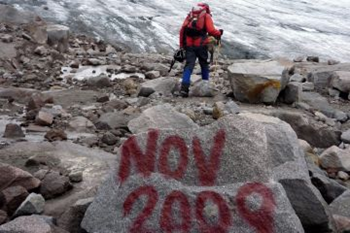Colombia loses its glaciers – ‘Everything is changing so fast that I’m not sure what’s normal anymore’
NEVADOS NATIONAL PARK, Colombia — Every year, the magnificent glacier-topped mountains of Nevados National Park attract thousands of tourists. But the snow and ice caps — called “nevados” in Spanish — are melting so fast that officials may have to come up with a new name for the park. There used to be 19 mountaintop glaciers in Colombia. Thanks mainly to global warming, there are now only six. And because these remaining ice caps are losing 3 percent to 5 percent of their mass every year, experts predict they will be gone by the middle of the century. “Our children and grandchildren will look at photos of these glaciers and ask: What happened? Why did they melt?” said Jorge Ceballos, Colombia’s foremost expert on glaciers who works for the government’s hydrology and meteorology institute. Glacier retreat receives more attention in countries like Peru, where the ice cap is 20 times larger than Colombia’s. There, the natural cycle of ice buildup and melting runoff is critical for the national water supply. By contrast, Colombia has plenty of water from other sources but very little ice and snow. […] Mexico and Venezuela will likely by the first two Latin American nations to lose their ice cap, with Colombia coming in at No. 3. Bolivia and Ecuador have also seen significant ice cap loss. For repeat visitors to Nevados Park, the shrinkage of the glaciers has been shocking. Johnny Reyes, an oil worker, remembered exploring the park’s vast network of ice caves. Now, the caves have melted. “I thought everything was going to be the same. But it wasn’t,” Reyes said. “I got really sad.” […] “Everything is changing so fast that I’m not sure what’s normal anymore,” Ceballos said. […]

"Our children and grandchildren will look at photos of these glaciers and ask: What happened? Why did they melt?"
I doubt it.
Our children and grandchildren are going to know exactly why the glaciers melted, since it will be the same reason their world doesn't have enough food to keep nations stable.